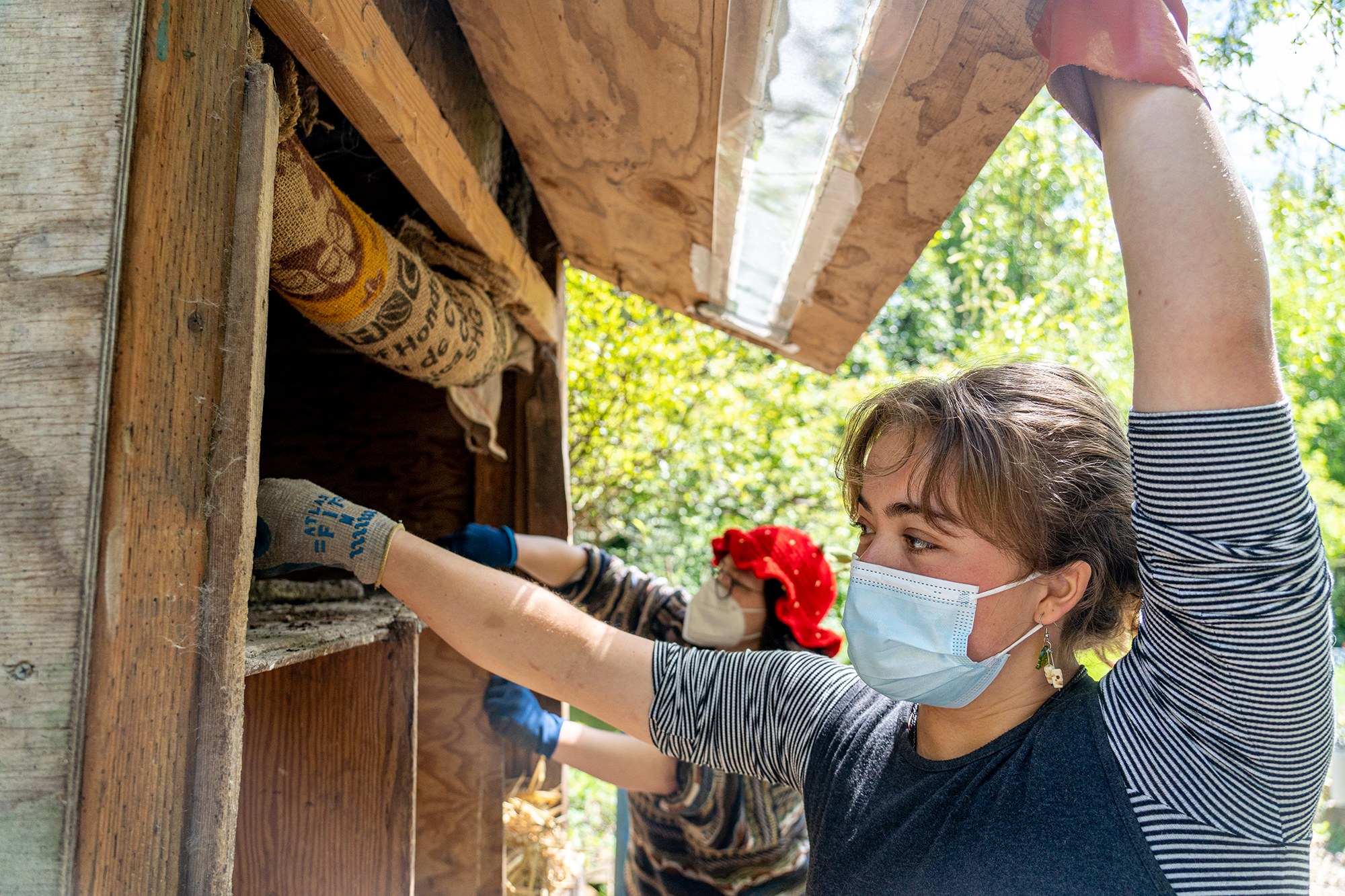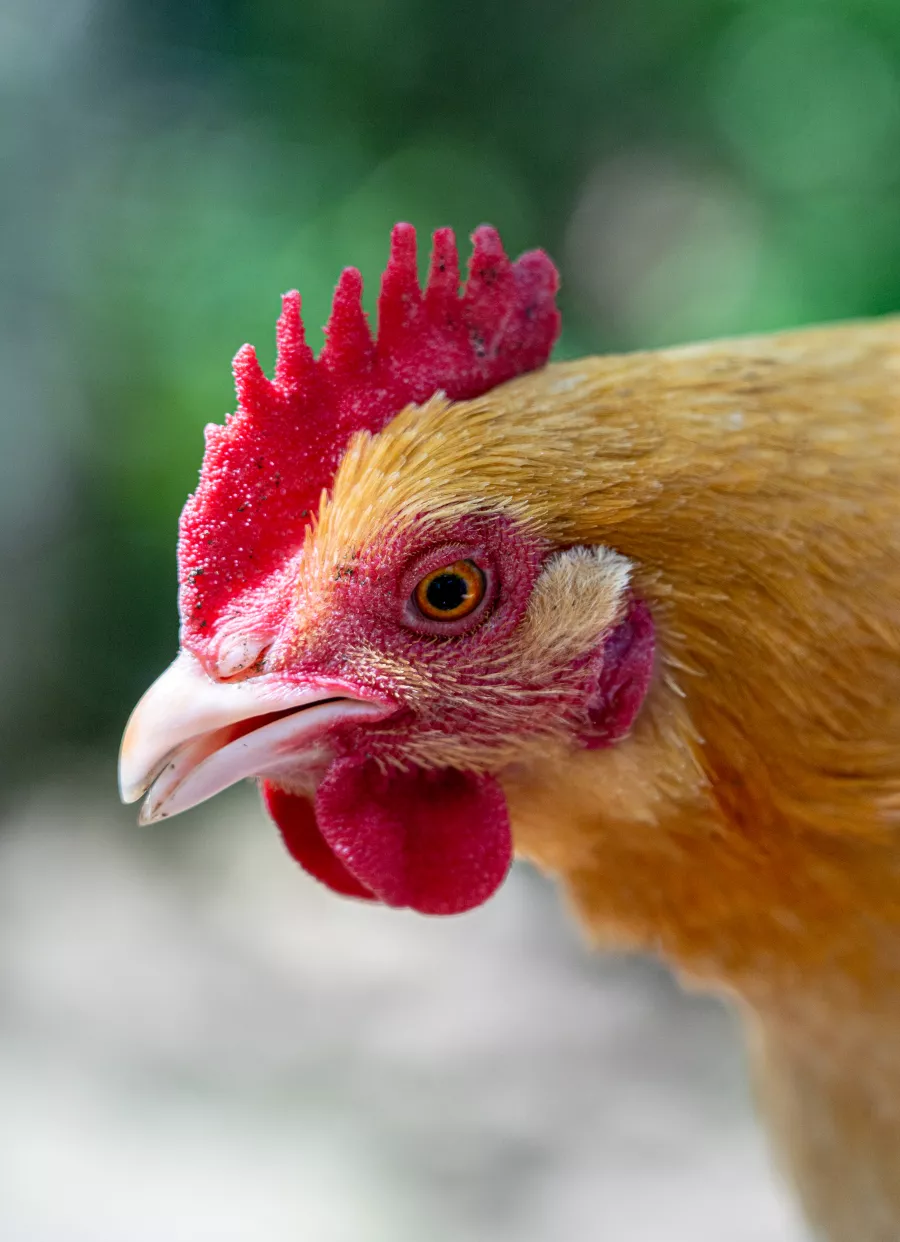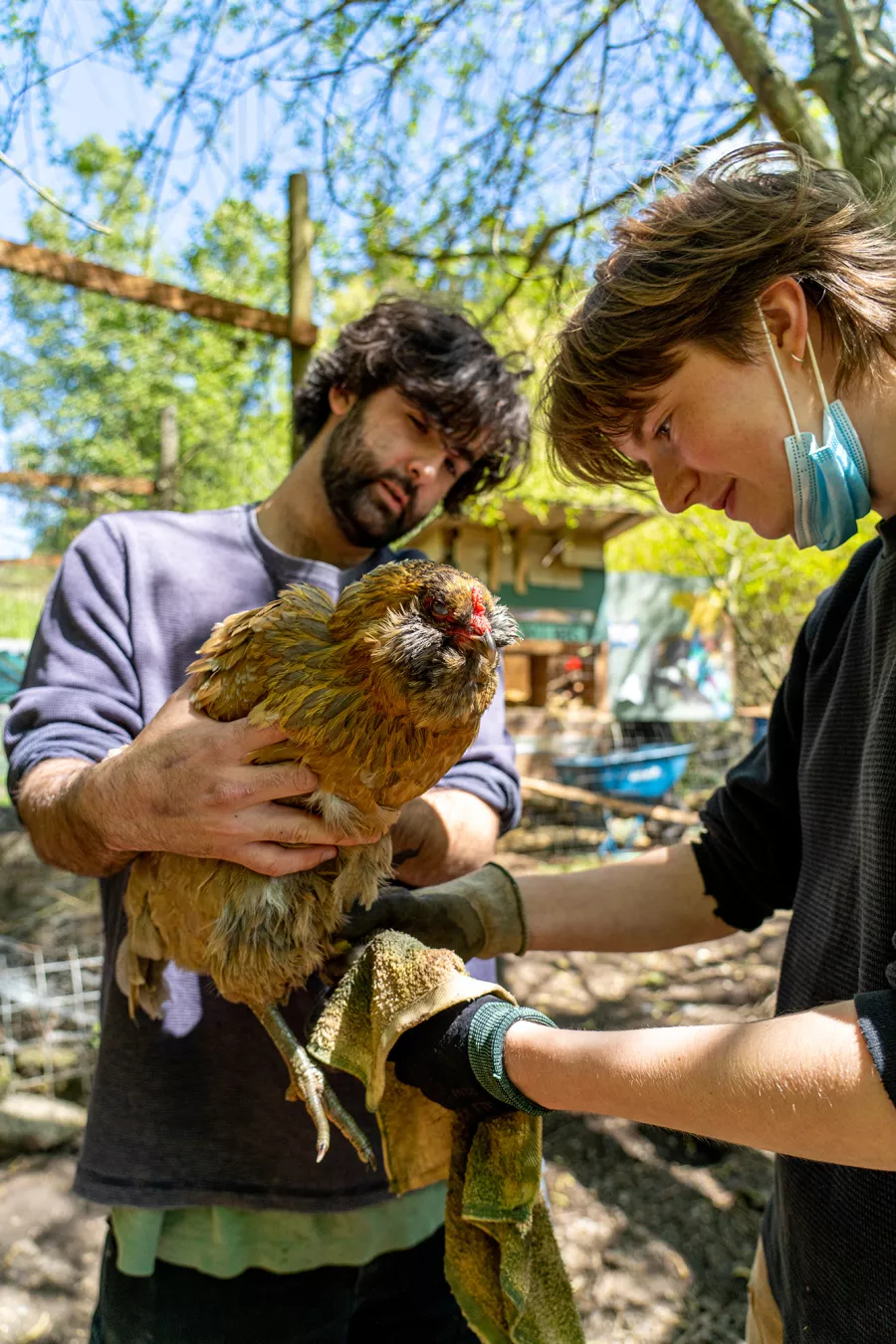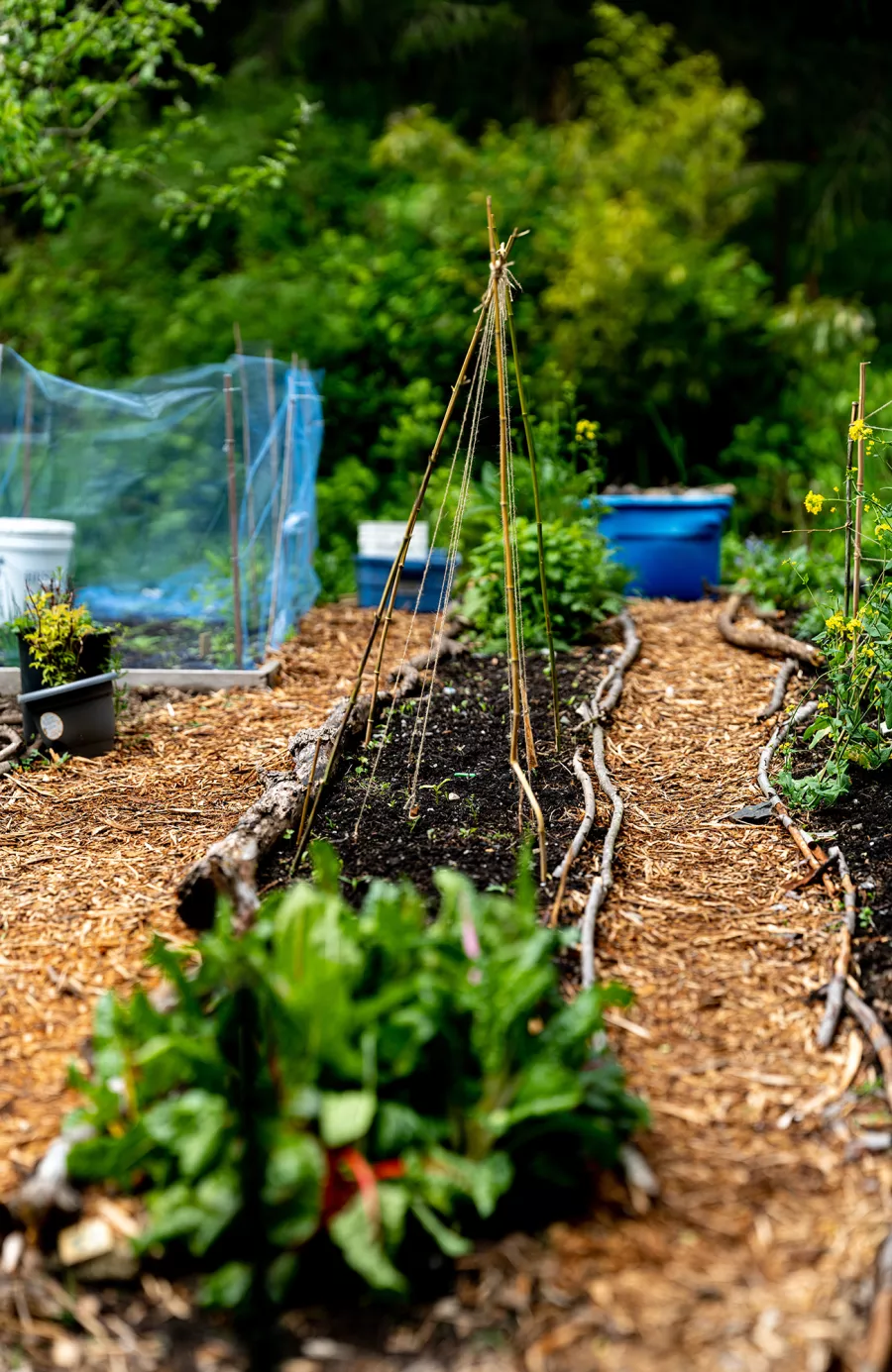Tucked away on 5 acres in a quiet corner of campus, with the birds chirping overhead, a spring breeze rustling the leaves, and rows of lovingly tended yet slightly wild garden beds sprinkled with hand-painted signs, it’s easy to see why so many students have connected with the Outback Farm since its scrappy beginnings five decades ago.
In 1972, when Fairhaven College of Interdisciplinary Studies was still new, a few students moved to the historic Burns cabins on the ridge above what is now the Outback and started farming. They built a barn, raised goats for milking and pigs for eating, planted a few fruit trees, and grew vegetables. Now as it celebrates its 50th anniversary, the Outback hosts dozens of classes and independent projects, a staff of eight students, a food forest, an apiary and 60 community garden plots.
The farm program has grown and evolved over the years, says Farm Manager Terri Kempton, ’98 Environmental Science, who also teaches in Fairhaven College. Through all the changes, one thing has stayed the same: the sense of community.
“When our students are graduating and moving on, that’s what they say is their favorite thing: the ability to work collaboratively and feel like they’re part of a community and to see the power that can come from working together,” Kempton says.
“I get to work with some of the most incredible people,” says. says Kate Conway, the Outback’s permaculture coordinator and a Fairhaven student whose interdisciplinary concentration is “Liberation through Food and Art: Regenerative Agriculture, Permaculture and Critical Indigenous Studies.”
With a cultural shift toward eating local and sustainable food, interest in the Outback Farm is high these days, and the farm has transformed from something that has been critically important to a small number of people into a deeply valuable campus resource. Kempton counted 124 students on the farm on the first sunny day of this spring, including classes, independent projects and a work party. “It was just this remarkable thing.”
“There’s definitely a surge of interest and energy about food systems, especially through a justice lens,” Kempton says. “I love connecting people to the food system and to the idea that they have the right and the ability to be engaged in creating their own food.”
For some students, the Outback Farm is an entry point into the food system that they’ve never had to the opportunity to consider.
“There are folks who come who’ve never touched a seed before,” Kempton says. “Having a chance to try that experience and also get to eat the produce that comes out of the farm system is really important.”
For many of the students she works with in the Outback, there’s a heightened level of uncertainty about the future as they watch a world struggling with the threats of pandemic and climate change. That’s something Conway can relate to.
“I feel like one of the only things we can rely on is that we can and must take care of each other,” Conway says. “Learning to grow food is so important and it is one of the ways that we can ensure that we can take care of ourselves no matter what happens. Being able to learn those skills and share those skills is something we get to do at the farm.”
The farm focuses on food justice, so rather than selling its produce, honey or eggs, everything that comes from the farm is distributed for free to students facing food insecurity. And during the pandemic, the farm’s mission to fight food insecurity on campus was only strengthened.
Students followed safety protocols to keep farming, and they began hosting pop-up food pantries that developed into weekly free-food pickups for more than a year to help feed students who were struggling with lost wages and financial hardship during the pandemic.
That by-students-and-for-students purpose makes for meaningful work for the students at the farm, and it helps them build invaluable skills to take with them after they leave.
“What I hope to do after this, I hope it involves making sure people have access to food. It’s a very important thing and an opportunity to bring people together,” Conway says. “There’s nothing like a shared meal made with food that you know who grew it and where it came from; that’s really special. So being able to provide food to the Western community is so awesome.”



